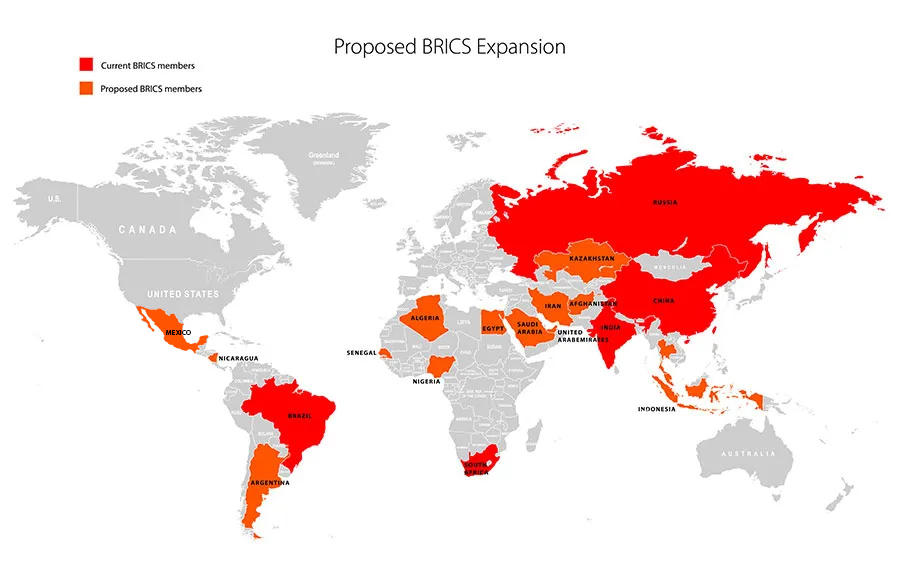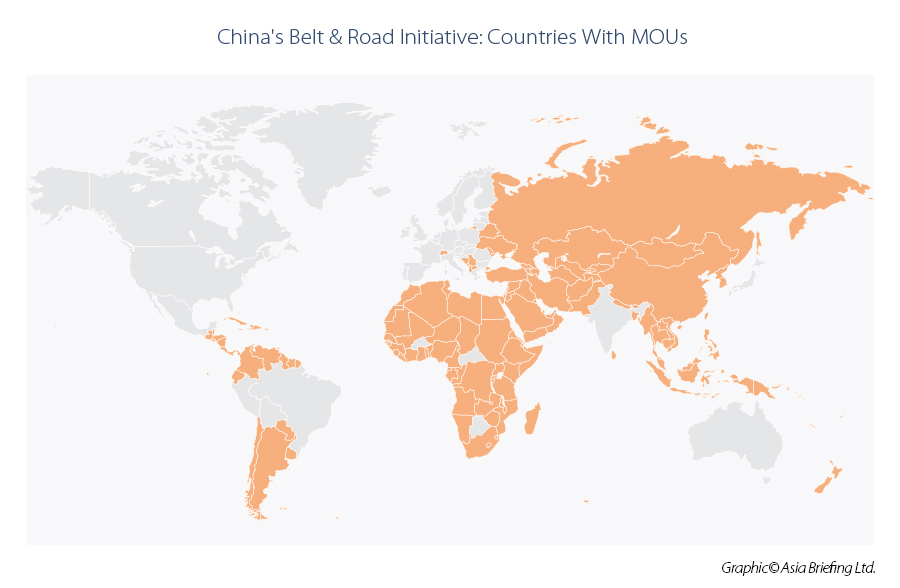Russia and China take steps to usher in a multipolar world and provide a partial road map
by Chris Devonshire-Ellis*
zf. In an extensive analysis China Briefing1 has reproduced in English and commented in detail on one of the two agreements reached between the Russian Federation and the People’s Republic of China, the “Joint Statement between the People’s Republic of China and the Russian Federation on Deepening the Comprehensive Strategic Partnership of Coordination in the New Era”. We document the summary of this analysis, but also recommend reading the entire text.
On the basic level, China and Russia have laid out a basic platform for the creation of a new World Order and have stated in part, their push to see this succeed. Much is already underway, with the Shanghai Cooperation Organisation already discussing mutual cooperation and development with the Eurasian Economic Union. Add in a BRICS+ and the Belt and Road Initiative and the world starts to look rather different than it did pre-Covid. At that time, President Putin stated that the world would never be as it was. It appears that President Xi agrees. He was heard stating that ‘Great changes are coming’ to Vladimir Putin as he departed back to Beijing on Tuesday evening, indicating that China and Russia do have the basis for enacting reforms. That means we can expect:
- Increased China and Russian diplomatic and trade efforts in Africa, the Middle East and South America;
- The gradual emergence of a mutual trade bloc to accommodate these;
- Increasing diplomatic and political pressure being put on existing global institutions, backed up by developing nation support in terms of reforms;
- The emergence of various types of financial settlement systems to act as an alternative to SWIFT;
- Continuing development of Russian energy resources flowing east and south east to ASEAN and India;
- Increasing coordination with the Middle East energy plays in their role as a regional energy hub, with special attention on Africa supplies;
- Increasing trade and aid being directed at influential yet poorer nations in Asia and Africa.
Not all has been revealed at this summit of course. However, the key points appear to have been made, what China likes to call ‘pillars’ of reform. I expect Western commentary to be either remarkably silent, or shrill in its condemnation. However, the geopolitical reality that a combined China-Russia axis can now instigate global reforms appears to be making itself felt. We will have to be patient and wait for further signs that this course of action is being followed through. With a revised combination of Russia’s Eurasian Economic Union, the Shanghai Cooperation Organisation, the BRICS+ and countries onside with China’s Belt and Road Initiative, the world may start moving away from a US-EU axis and towards a more evenly spread, truly globally effective regime – with both Beijing and Moscow retaining their position as key players. Such a map would resemble the following:
This shows countries that have signed up to China’s Belt and Road Initiative, but there are some anomalies, Brazil and India are both part of BRICS and have extensive trade interests with Russia for example. If anything, the grouping of countries prepared to take part and contribute towards a China-Russia proposed global bloc could potentially be larger than shown. That is a challenge to the West.
Finally, Western analysts enjoy preparing reports suggesting Vladimir Putin is obsolete – the China-Russia Comprehensive Strategic Partnership suggests that is not actually the case. Further developments, diplomatic pushes and the promoting of economic attractiveness can all be expected to be part of a common China-Russia strategic plan for the coming few years, with adjustments as necessary being made on the way. The next Xi-Putin Summit, to be held in Beijing probably in Autumn, promises to be an interesting yardstick as concerns progression and what is yet to come in terms of global realignment. •
Source: https://www.china-briefing.com/news/the-putin-xi-summit-their-joint-statement-and-analysis/ of 22 March 2023
* Chris Devonshire-Ellis is the Chairman of Dezan Shira & Associates; and has had a 30 year foreign investment advisory career in China, India, ASEAN, the Middle East and Russia.
1 China Briefing is written and produced by Dezan Shira & Associates. The practice assists foreign investors into China and has done so since 1992 through offices in Beijing, Tianjin, Dalian, Qingdao, Shanghai, Hangzhou, Ningbo, Suzhou, Guangzhou, Dongguan, Zhongshan, Shenzhen, and Hong Kong. Dezan Shira & Associates has offices in Vietnam, Indonesia, Singapore, United States, Germany, Italy, India, and& Russia, in addition to our trade research facilities along the Belt and Road Initiative.

